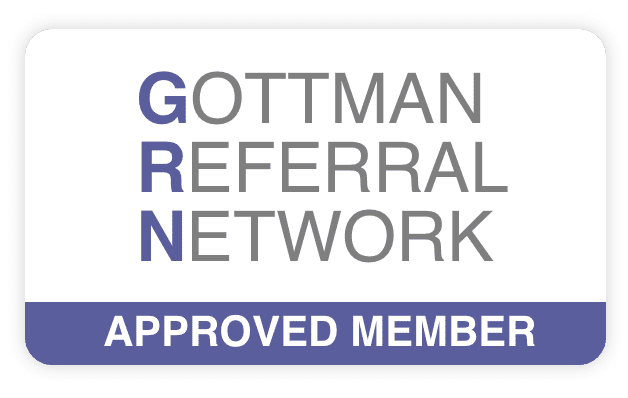Chances are the last time you clashed with your
 partner, the argument had a painfully familiar ring to it. The facts may differ,
the intensity may vary, but the basic issues stay the same—the positions infuriatingly entrenched.
Even the misery that comes after the fight has a recycled feel to it. "We're stuck," many couples tell me. "We
never get anywhere—even when we really try to sit down and talk about our problems."
partner, the argument had a painfully familiar ring to it. The facts may differ,
the intensity may vary, but the basic issues stay the same—the positions infuriatingly entrenched.
Even the misery that comes after the fight has a recycled feel to it. "We're stuck," many couples tell me. "We
never get anywhere—even when we really try to sit down and talk about our problems."
Sadly enough, it's true. Meaningful dialogue has stopped as each party continues to play a role in a stand-off that destroys confidence in problem-solving abilities as well as the relationship. One goal of the therapy, as I see it, is to move you from these holding patterns into real dialogues that address your true needs, hopes, wishes and dreams.
Conflict
Fights which are focused on money, in-laws, sex, work, affairs, retirement, friends, recreation, children, jealousy, and lifestyle often have deeper roots. The anger, sadness, emotional disengagement, and despair that underlie these fights need careful attention and exploration. The hidden hopes and dreams are the real casualties—subjects so carefully guarded that they never even enter the discussion, and not surprisingly,
|
LEARN HOW COUPLES
REKINDLE DESIRE AND GET HAPPY AGAIN Click here to preview Diana Shulman's new book. |
The goal of therapy is not to eliminate fighting. Fights are going to happen—they're natural and normal in all relationships. The question is: how quickly and effectively do you move to repair your fights? Are you able to examine exactly what went wrong and talk this over with your partner without getting back into the fight? If not, you are in effect "wasting" your fights, ensuring that there will be no take-away lesson and no chance to have more skilled interactions in the future.
Self-assessment
Ask yourself whether or not you could use some help with aspects of your interactions that tend to "go off the rails":
- Are either of you critical as opposed to gentle in voicing complaints?
- Are either of you defensive rather than taking ownership of at least a part of the problem?
- Are either of you "holier than thou" (contemptuous ) rather than working from a foundation of friendship and appreciation—knowing that nobody's perfect?
- Do either of you shut down and withdraw during your fights?
- Do your discussions start harshly?
- Are you both open to influence from the other or is it instead a one-way street?
- Do you enjoy your time together doing routine tasks or errands?
- Do you have meaningful rituals and habits around leave-taking and reunion, meals, friendships, bedtimes, couples dates and holidays?
- Do you share similar goals and values?
- Do the two of you compromise well?
My approach
As a psychoanalyst who is certified in Gottman Method Couples Therapy and Emotionally Focused Therapy for Couples, I use research-based assessments and techniques to help you reduce negativity and rebuild the intimacy in your relationship. I help you reduce negativity and rebuild the intimacy in your relationship. I also draw heavily on my training in AEDP, a psychoanalytic, emotion-focused approach, developed by Dr. Diana Fosha, author of The Transforming Power of Affect. Getting to emotion is an important part of this work, and my job will not be to soothe you but to teach you how to self-soothe and become a port in the storm for your partner. It is my firm belief that we can get to the root of your relationship problems without either of you feeling as though you're about to be identified as the "pathological partner" or the one who is deficient or bad. Instead, we'll work in a respectful, collaborative way to help you deepen your understanding of each other as well as strengthen the friendship that is a vital part of repair. At the end of therapy, most people tell me that our work was a positive emotional experience and that they enjoyed the sessions as well as the homework and exercises.
How the therapy is structured
We need to do a thorough assessment of relationship strengths and weaknesses so that the areas we target are not based on guesswork. With this in mind, we will have 4 sessions devoted solely to information gathering. Our first session (80 to 85 minutes) will be spent exploring each of your hopes and fears about therapy; the history of your relationship; and some areas of current difficulty. After this first session, you will each complete a detailed on-line questionnaire. By our second couples meeting, I'll have reviewed the completed questionnaires so we can go over the treatment plan, jointly deciding which issues to give our immediate attention.
Time commitment
I recommend a 10 session commitment after the assessment period. Following these 10 sessions, we can move to less frequent sessions and if it seems feasible, begin to phase out the therapy. Beyond that, we will schedule 4 sessions for follow up: 1 session after 6 months, another after 12 months, 18 months and after 2 years. Research shows that these type of "tune-ups" significantly reduce the chance for relapse.

